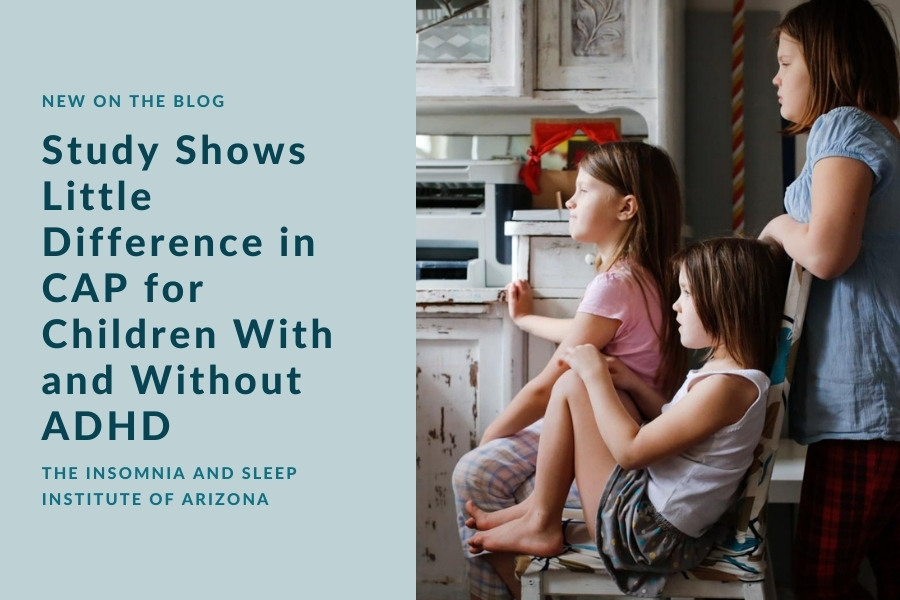Attention deficit hyperactivity disorder (ADHD) can affect a lot of aspects of life, including facets of sleep. The Insomnia and Sleep Institute of Arizona works with patients as young as two years old, including a number of patients with ADHD of all ages. According to a recent study published in Neurology Advisor, ADHD is not a major factor when it comes to cyclic alternating pattern (CAP) and interval distributions. The Swiss and Italian researchers undertook a study to identify the CAP in kids with ADHD who were “considered” to also have sleep disorders.
In total, 27 children with ADHD with a mean age of 10.53 were included in the study. An additional 23 children of similar age were part of the control group. A full sleep investigation was part of the study, and within the 27 kids with ADHD 11 were diagnosed with obstructive sleep apnea (OSA), 6 with interictal epileptiform discharges (IEDs), 2 with narcolepsy, 3 with sleep-onset insomnia, 4 with movement disorders, and 1 with arousal problems. Although the children with ADHD did have relatively high CAP rates, this was considered a normal level for kids of this age.
The Many Factors of Sleep Disorders
Researchers report that both groups had comparable CAP parameters, around 50 percent of normative values. Although the researchers say that future studies will be required to further explore differences in sleep microstructure via CAP parameters, this study does provide data that will help drive treatments for children with a variety of sleep disorders.
Recognized as the Face of Sleep Medicine in Phoenix, The Insomnia and Sleep Institute is committed to helping patients of all age achieve better quality sleep. Many sleep specialists do not work with children, but the reality is that a lot of children struggle with sleep disorders that can affect their behavior, growth, and development. It is a mistake to consider childhood sleep disturbances as simply milestones to overcome. From insomnia to sleep apnea and movement disorders, all sleep disorders present in children can and should be addressed as soon as possible. That’s why we operate with an outcome-driven approach and every consultation is only with sleep specialists who can diagnose sleep disorders. This is the necessary first step to inform the next steps, which may include testing and treatment.
If you suspect your child has a sleep disorder, you deserve access to the unprecedented staffing levels available at The Insomnia and Sleep Institute. Not only are we home to the “Top Doc” in the region, as voted by his peers for six consecutive years, you will also find two clinical psychologists focused on cognitive behavior therapy (CBT) for insomnia, respiratory specialists, a physician assistant with a Masters in Sleep, and nurse practitioners with training in sleep medicine.
It can be difficult to determine what is “normal” sleep behaviors, especially in children. However, what is true across the board is that all people (and children in particular) require a baseline amount of quality sleep to properly develop. The signs of a sleep disorder don’t always occur at night. If you notice behavioral issues, excessive fatigue during the day, issues with reaching growth milestones, or struggle with bedtime or morning routines, a sleep disorder may be present.
Quality Sleep for All
Children with an ADHD diagnosis can experience problems associated with sleep even if their CAP value is similar to kids without an ADHD diagnosis. We have the tools and experts to help you and your child establish healthy sleep. From your first consultation with a sleep specialist to the treatment stages (if applicable), you can enjoy peace of mind knowing you and your child are being cared for by the leading experts in sleep medicine in Arizona.
Get started today by scheduling your consultation. No referral is needed, and The Insomnia and Sleep Institute accepts most major insurance plans. The quickest way to connect is by completing the online form, and we can schedule your consultation for a day and time that works with your child’s schedule. You can also reach out to The Insomnia and Sleep Institute by calling the office at (480) 745-3547.





